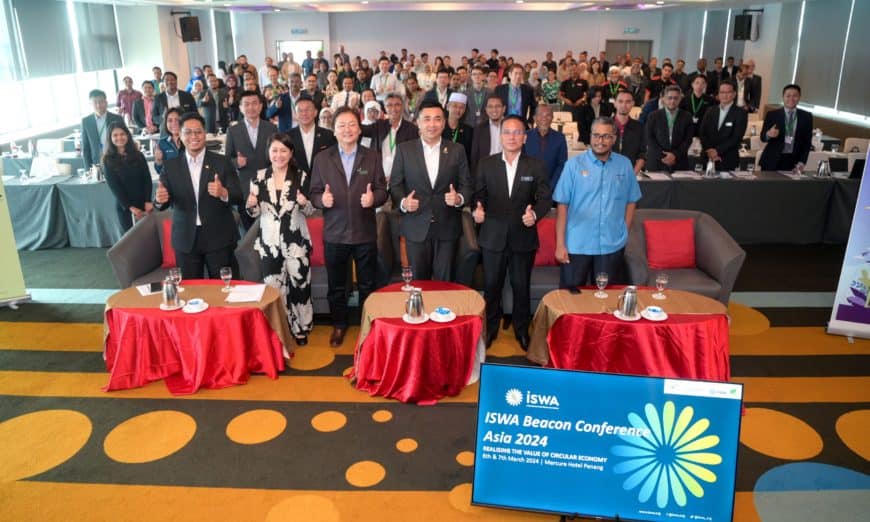ABOUT 200 participants, including waste management experts, technology providers and professionals with common interests, gathered at Mercure Hotel in Tanjung Bungah today and will continue to do so tomorrow for the International Solid Waste Association (ISWA) Beacon Conference Asia 2024.
Held for the first time in Penang, the regional collaborative conference is a joint effort of the Waste Management Association of Malaysia (WMAM), Waste Management and Recycling Association of Singapore (WMRAS) and Indonesia Solid Waste Association (InSWA).
The event, endorsed by the International Solid Waste Association (ISWA), centres around the theme ‘Realising the Value of Circular Economy.’
During the conference, Jason H’ng Mooi Lye, the Penang state exco for Local Government and Town and Country Planning, delivered an insightful address. He urged participants to harness the power of innovation and ingenuity to develop sustainable solutions that transcend borders and inspire change.
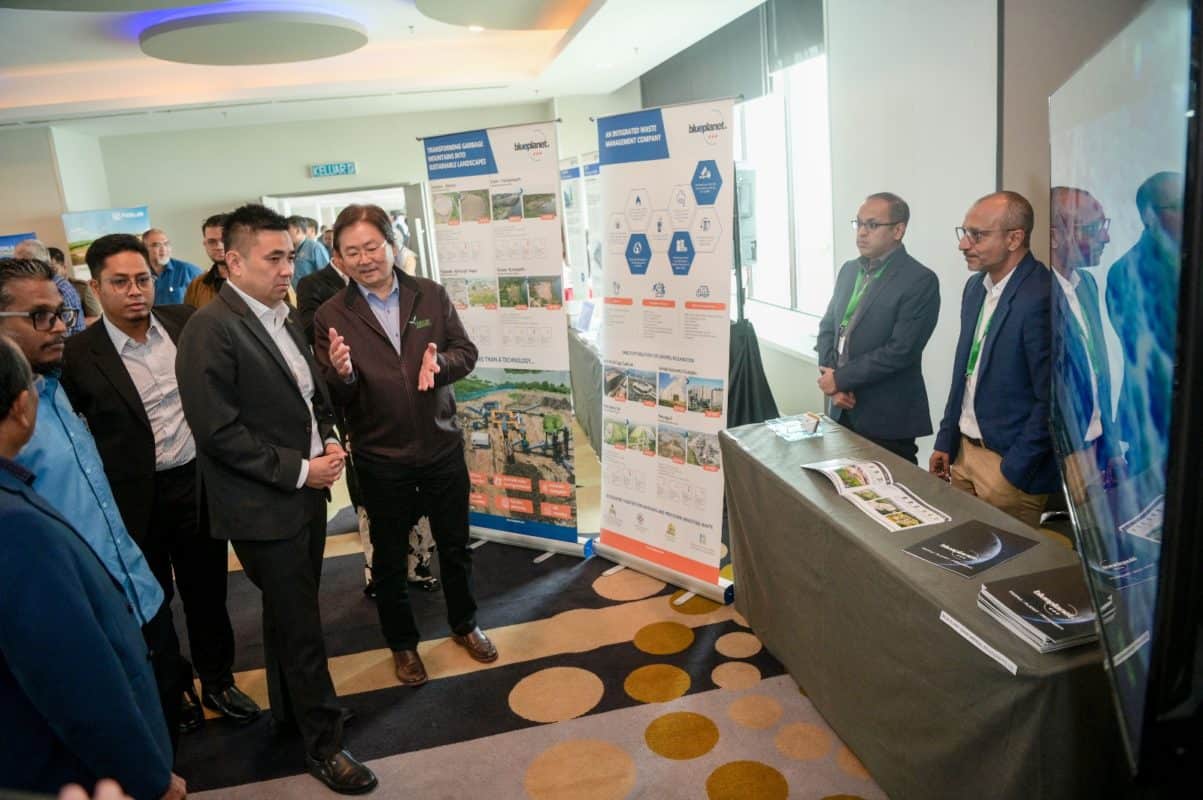
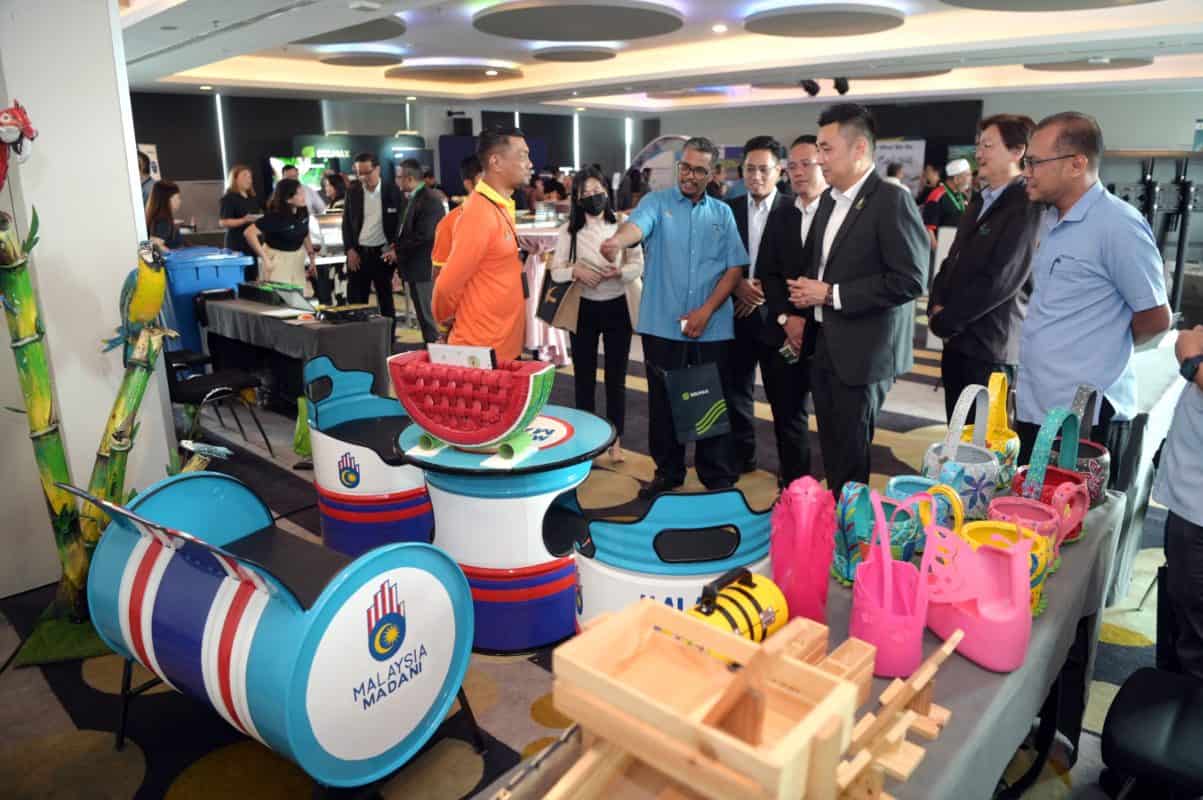
“Let us continue to chart a course towards a world where waste is not a burden, but a valuable resource to be cherished, conserved, and repurposed for the benefit of all.
“Let us seize this opportunity with courage and conviction, know that the decisions we make today will shape the world tomorrow,” he emphasised.
He added that since the inception of the ‘No Plastic Bag’ campaign in 2009, Penang has successfully reshaped the behaviours of businesses and citizens. The statewide endeavour not only led to a remarkable reduction of 33 million plastic bags but has also a positive impact on environmental sustainability.
Furthermore, he said Penang has invested heavily in infrastructure development to support a circular economy approach to waste management. Through public-private partnerships and strategic collaborations, the state is transforming waste into valuable commodities, generating economic value, and creating green jobs for its citizens.
H’ng said the state government also recognised the importance of a comprehensive waste segregation programme implemented at the source. For this initiative, the state has taken a leading role to encourage households, businesses, and institutions to segregate their waste into recyclable and non-recyclable items.
Among the attendees were Muhamad Husni Mahmud, Undersecretary of Local Government Division, Penang State Secretariat Office; Ho De Leong, chairman, Waste Management Association of Malaysia (WMAM); Melissa Tan, chairman of Waste Management & Recycling Association of Singapore (WMRAS); M. Satya Oktamalandi, secretary-general Indonesia Solid Waste Association (InSWA); Ahmad Zabri Mohamed Sarajudin, director of Urban Services Department, Seberang Perai City Council; Aditi Ramola, technical director, International Solid Waste Association and Tam Hoang, Sustainable Urbanisation Specialist, UN-Habitat Multi-Country Programme Office.
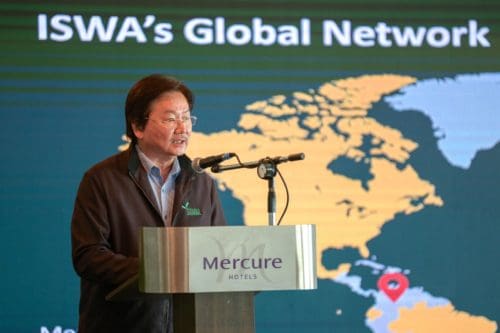
Ho expressed hope that the participants would take the opportunity to learn and share over the next two days.
According to the Ministry of Housing and Local Government, Malaysia generates approximately 38,000 tonnes of solid waste daily in Malaysia.
While Malaysia faces big challenges in solid waste management, he said the Federal government has implemented various measures to address these challenges.
One notable initiative is the National Strategic Plan for Solid Waste Management (2019 to 2030), aimed at reducing waste management, increasing recycling rate and enhancing waste management for safety.
Furthermore, Ho highlighted ongoing public education and awareness campaigns on waste management, including the promotion of 3Rs (reduce, reuse and recycle) concept, and the active encouragement of proper waste segregation.
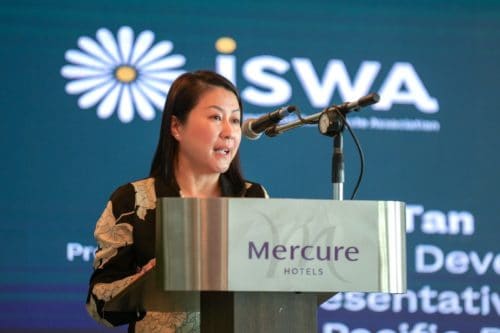
Tan said in 2023 alone, a staggering 2.3 billion tonnes of municipal waste burdened our planet, with projections ominously pointing to a daunting 3.8 billion tonnes by 2050.
“Do nothing is not an option. The prevailing take-make-dispose paradigm must end if we are to secure a liveable planet for future generations.
“Urgent investment in zero waste and circular economy strategies is essential, scaling up efforts.
“In charting a course towards zero waste, let us prioritise comprehensive cost-assessment and foster a culture of sustainable consumption. By scaling up zero waste and circular economic models, and embracing inclusive making decision processes, we can realise sustainable developments,” Tan said.
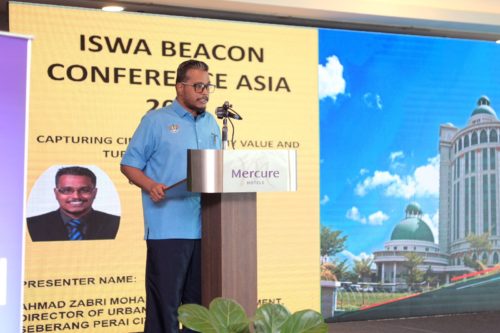
Ahmad Zabri, sharing on the topic ‘Capturing Circular Economy Value and Turning It to Revenue,’ revealed that Penang boasts the highest recycling rate in the country at 53%.
However, he said food waste constitutes a significant portion, accounting for 50.96% of the 220,50 tonnes of waste collected.
Currently, Ahmad Zabri noted that the Pulau Burung landfill spans 450 acres, with 200 acres remaining as vacant land. Yet, proactive measures need to be taken to prepare for the future.
Story by K.H. Ong
Pix by Siew Chia En

